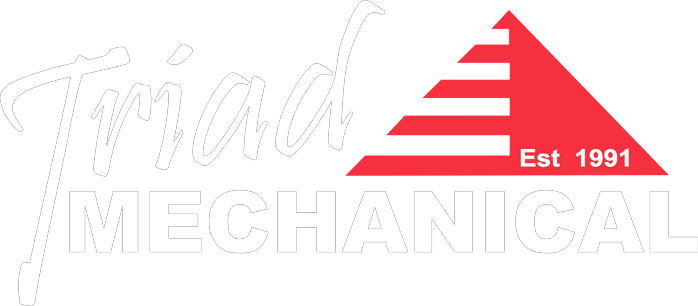If you’re thinking about installing a new HVAC unit for your home or business, there are several things you need to know. Keep reading to learn more from AC installations in Loganville, GA, from Triad Mechanical.
Calculating BTUs
BTU stands for British Thermal Unit. It’s a unit of measurement that represents the energy required to change the temperature of one pound of water by one degree. The same standard of measurement is used to calculate HVAC unit size. However, just because a unit has a high BTU output, doesn’t mean it’s more efficient. Efficiency depends on the size of the room or house where the unit will be installed. A unit that’s too big will cycle on and off more frequently, causing unneeded wear and tear to the internal parts. A unit that’s too small will struggle to maintain the desired temperature and overheat. To calculate the right size unit for your heating and cooling needs, first you need to calculate the area of every room in your home. Combine those numbers to get the total square footage of your home. Multiply the area of your home by 20 and that’s the approximate number of BTU’s you need. If you have a lot of shade trees around your home, you can subtract 10% from that calculation. For rooms with large bay windows that received a lot of afternoon sunlight, consider adding 10% more to your total BTU count.
[/et_pb_text][/et_pb_column][et_pb_column type=”2_5″ _builder_version=”4.9.4″ _module_preset=”default” global_colors_info=”{}”][et_pb_image src=”https://triadmechanical.com/wp-content/uploads/2021/09/Triad-Mechanical_Replacing-Your-AC_IMAGE-1-480×320-1.jpg” title_text=”Triad-Mechanical_Replacing-Your-AC_IMAGE-1-480×320″ align=”center” _builder_version=”4.10.8″ _module_preset=”default” hover_enabled=”0″ global_colors_info=”{}” sticky_enabled=”0″][/et_pb_image][/et_pb_column][/et_pb_row][et_pb_row column_structure=”3_5,2_5″ _builder_version=”4.9.4″ _module_preset=”default” global_colors_info=”{}”][et_pb_column type=”3_5″ _builder_version=”4.9.4″ _module_preset=”default” global_colors_info=”{}”][et_pb_text _builder_version=”4.10.8″ _module_preset=”default” header_2_font=”||||||||” header_2_line_height=”1.3em” header_3_line_height=”1.3em” hover_enabled=”0″ global_colors_info=”{}” sticky_enabled=”0″]The SEER Rating
In 1987, the Department of Energy promoted a piece of legislation that set higher standards for the HVAC industry. They used the SEER rating system to determine whether a unit was energy-efficient. In 1992, all new units had to score at least a ten but as technology improved, the national minimum increased to 13. In the Southeast, many states like Florida, Georgia, and Alabama adopted a minimum standard of 14 because of regional energy usage during the summer months. The higher the SEER rating, the more efficient the model. This translates to more savings on your monthly energy bills. If your unit is over 10 years old, chances are it isn’t up to par with today’s energy-saving standards.
[/et_pb_text][/et_pb_column][et_pb_column type=”2_5″ _builder_version=”4.9.4″ _module_preset=”default” global_colors_info=”{}”][et_pb_image src=”https://triadmechanical.com/wp-content/uploads/2021/09/Triad-Mechanical_Replacing-Your-AC_IMAGE-2-480×320-1.jpg” title_text=”Triad-Mechanical_Replacing-Your-AC_IMAGE-2-480×320″ align=”center” _builder_version=”4.10.8″ _module_preset=”default” hover_enabled=”0″ global_colors_info=”{}” sticky_enabled=”0″][/et_pb_image][/et_pb_column][/et_pb_row][et_pb_row _builder_version=”4.9.4″ _module_preset=”default” custom_padding=”0px|||||” global_colors_info=”{}”][et_pb_column type=”4_4″ _builder_version=”4.9.4″ _module_preset=”default” global_colors_info=”{}”][et_pb_text _builder_version=”4.10.8″ _module_preset=”default” header_2_line_height=”1.3em” header_3_line_height=”1.3em” hover_enabled=”0″ global_colors_info=”{}” sticky_enabled=”0″]Repair or Replace?
Do you really need a new unit or just a tune-up? Ultimately, only an experienced HVAC technician can answer this question. Regular inspections and tune-ups will help extend the life of your existing unit. Parts like the condenser and the heat pump can be replaced as needed. These are usually the first parts to go in older units. Ask for an estimate for every repair job to determine whether it’s worth repairing or if you should have the unit replaced. For an inspection and estimate, contact you trusted AC repair company in Loganville, GA.

